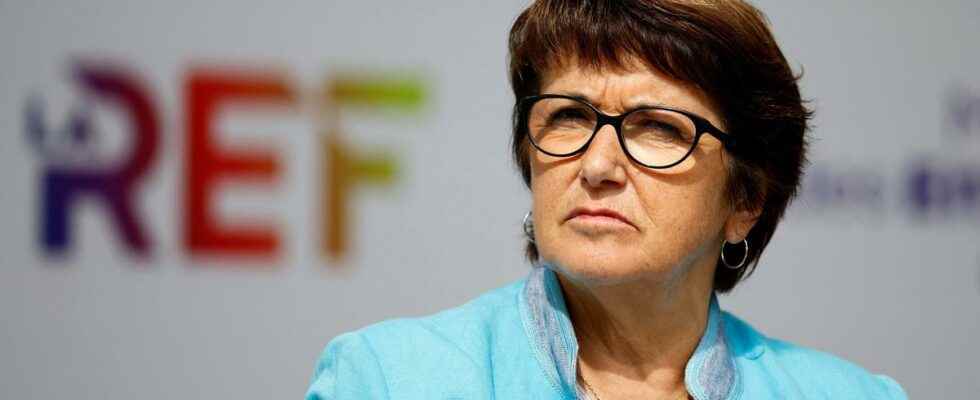The president of the majority agricultural union Christiane Lambert wishes in particular to negotiate an agreement with large retailers to increase milk prices.
After a difficult summer for farmers, marked by drought and a continuous rise in production costs, the president of the majority agricultural union FNSEA Christiane Lambert called for a reconciliation “food and ecological planningon Tuesday during a back-to-school conference. Faced with the concern that grips the profession, “no way for us to be slaughtered, we are determined to act and make this necessary double planning, both food and ecological, understood.“, she defended, taking up the title of the mission entrusted to Prime Minister Élisabeth Borne.
“Agriculture knows it has a number of improvements to make“, recognized Christiane Lambert, who affirmed to support the fixing of environmental objectives as long as they are accompanied “levels and support means (…) and as long as food safety is not penalized“. “Food sovereignty, food security, the ability to produce is not definitively acquired“, she underlined, insisting on a notion that her union helped to put back at the heart of the public debate from the start of the war in Ukraine.
Arm wrestling with large retailers and environmentalists
Among the hot issues for the start of the new school year: the trade negotiations, which are more tense than ever with large retailers, and which were even the subject of a call to order from the government on Friday to call on the brands to accept the price increases of industries, particularly in the milk sector. To adapt to climate change,agriculture needs emergency measures, but it also needs long-term measures, to hold, to guarantee the sustainability of farms“, she added. Among them, the FNSEA defends increased use of water storage and irrigation, which are not unanimous among agricultural unions and environmental associations.
Read alsoAgriculture seeks a more connected and ecological future
Another crucial subject, fully linked to the accumulation of climatic risks: the reform of crop insurance, the profession of which is awaiting the operational modalities by its entry into force in January 2023. The FNSEA pleads in particular for a trigger threshold from taking over to 20% loss of production (compared to 30% currently). Christiane Lambert, who also chairs the leading organization representing farmers in Europe, Copa-Cogeca, recalled that 44% of European agricultural land was affected by drought this summer, particularly in Italy and Spain where olive groves and sunflowers suffered greatly.
